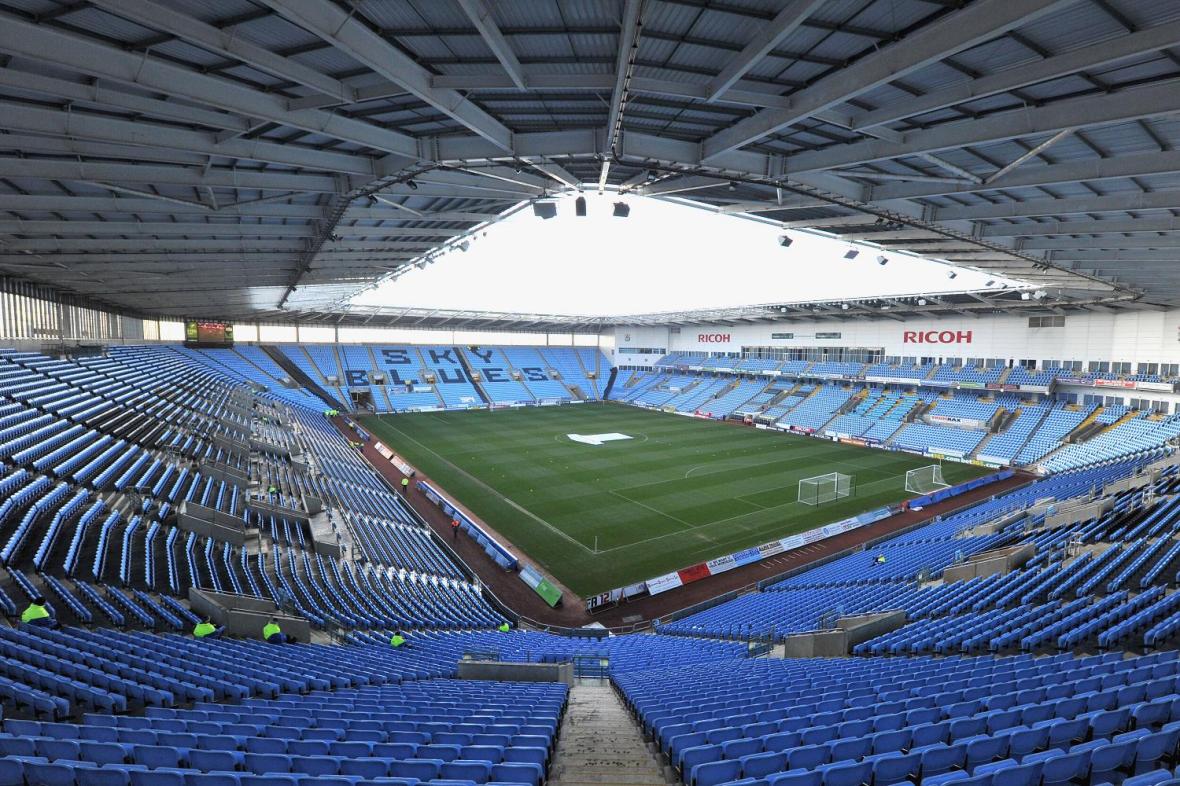So finally, the Ricoh Arena sees some top flight football. Remember when Coventry City played in the top flight? They had a long run from 1967 until 2001, when they were relegated. They moved from Highfield Road to the Ricoh Arena in 2005, but never returned to the Premier League. And disputes with the owners of the Ricoh mean the club now groundshare with Birmingham City rather than play in a stadium on the outskirts of Coventry. Wasps rugby club are the current owners, but if sport is being played behind closed doors, given the nature of the sport, I don’t see too many rugby matches taking place, regardless of a crowd being allowed.
However, the plan of the Premier League to fall in line with UEFA’s decree (after delaying Euro2020 for 12 months) that all outstanding fixtures of the current domestic competitions be completed by June 30th or else 2019/20 becomes null and void, will likely see matches played in neutral venues in empty stadiums (often two on the same pitch on the same day) congregated around the Midlands, and given the Ricoh does not host any club, it's an obvious choice for matches. It’s also relatively easy to police in terms of preventing mass gatherings of fans outside the ground (as happened when PSG beat Borussia Dortmund behind closed doors at the Parc des Princes).
The priority for the Premier League is fulfilling their contractual obligations to TV companies who have paid to screen matches, although whether or not this will see season ticket holders refunded, we cannot yet say. There aren’t too many Midlands clubs in the top flight, and to avoid advantage, you can see the likes of Leicester, Villa and Wolves not playing matches on their own turf, although there is a good chance they will be used by others.
I’m not certain whether or not this is such a viable option for clubs in lower divisions. Even at Championship level – although right now, you’d do well to find any football odds - the moneyreceived from ticket sales is a much higher percentage of a club’s revenue compared to the Premier League. So behind closed doors is going to be a far less attractive proposition for them. The Government can talk about soft loans to help businesses, but loans have to be repaid eventually and I suspect the majority of clubs in the professional football pyramid are living hand to mouth and will never be able to make up the funds lost if the remainder of the season does not take place in front of paying crowds.
The Premier League aren’t going to worry too much about smaller clubs going out of business, and we’ve already seen a precedent at the start of the current campaign with Bury going under, and Bolton Wanderers (in the Premier League as recently as 2012) almost suffering the same fate. Football has become the survival of the fittest and it’s difficult to see many clubs surviving in their current form if the sport does not return to normality for them by the middle of April.
We wait official confirmation of the Premier League plan, with the distinct possibility that Champions League and Europa League matches will be played at weekends. The thing to remember is that accommodating fans travelling to matches is not a factor and that the only real issue is the timing of the games to ensure as big a television audience as possible. So we will probably have a diet of Monday to Friday domestic football with UEFA matches taking place at weekends. Mind you, chances are the European commitments will only concern Manchester City, Manchester United and Wolves after the current round of 16 matches have been completed. It’s certainly no longer an issue for Arsenal.
Personally, I thought the TV factor would mean that the big leagues around Europe – and indeed UEFA’s two main competitions – would see the campaign completed by hook or by crook. Some believed the season would be scrapped, but there’s too much money to be lost by doing that.
Appalling as the spectacle of behind closed doors football is, one thing that has interested me is that you can hear the players communicating and the coaches’ instructions from the bench. A bit like a poorly attended reserve game used to be. Of course, the Premier League might try and be creative with CGI to produce a crowd for TV viewers and recorded atmosphere. I hope not. It will be more interesting to hear what’s actually going on, and indeed, which language our players use to communicate.
One thing’s for sure – this is a season that no-one will ever forget, however it turns out…
_______________________________________________________________
The campaign to save The Gooner for the 2020/21 season is in progress. If you wish to see the fanzine continue printing after the end of the current season, details of how to subscribe can be found here. If you wish to order with a credit card, go straight to our online store page here. We need to secure 1,000 subscribers by the end of March 29th to continue.
The current issue of The Gooner (282) is on sale from our online store. You can order your copy here (for UK orders) or if you are abroad, order here.
_______________________________________________________________
You can follow The Gooner on
Twitter
Facebook
Instagram
or subscribe to our
YouTube channel (where you can find the GoonerFanzineTV weekly podcast)








